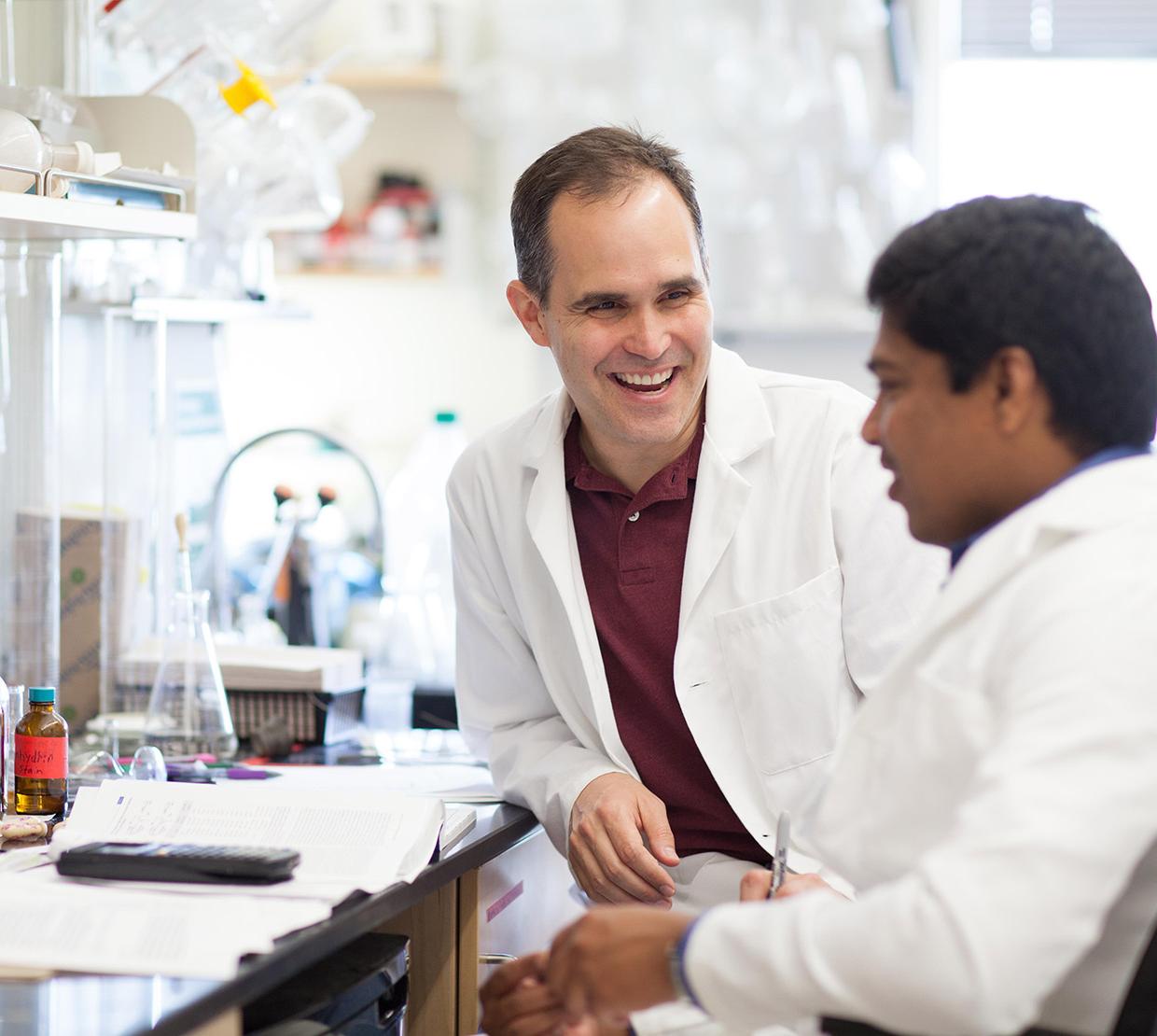Chemistry Professor Rich Carter has received a $438K grant from the National Science Foundation to study adding innovation and entrepreneurial achievements into the criteria for higher education faculty promotion and tenure.
The grant will fund a survey of more than 200 colleges and universities, as well as a national summit expected to draw approximately 300 higher education executives and faculty to Washington, D.C., in September 2020.
“This grant has the potential to cause a fundamental shift in how faculty are incentivized and rewarded for their research endeavors,” said lead investigator Carter, who also serves as the faculty lead for innovation excellence in the OSU Research Office. “It has the chance to create a seismic shift for what sort of research is focused on, to incentivize researchers to think about the societal impact of their work.”
Historically, faculty have often concentrated on more fundamental research during their early career and shifted toward more market-focused research after receiving tenure, Carter adds.
“This approach forces people to have to pivot their research when they’ve already got all of their momentum pointed in another direction,” he said. “I’m always surprised when people say faculty should wait until they have tenure to think about research that has market impact.”
Carter adds that technology transfer from universities is a major driver for the U.S. economy, contributing $591 billion to the gross domestic product over the past two decades and supporting more than 4 million jobs.
In making the award to Oregon State, the National Science Foundation is effectively funding OSU’s leadership of a national conversation on building innovation and entrepreneurial activities into tenure and promotion guidelines, said co-principal investigator Karl Mundorff.
“Those activities lead to technology being licensed by industry partners or into university-based spinout companies, but it has not been recognized in most promotion and tenure guidelines. And where it has been incorporated, there doesn’t seem to be much consistency,” said Mundorff, co-director of the OSU Advantage Accelerator, which assists entrepreneurs seeking to start companies.
OSU, as well as Corvallis and the state of Oregon, bring a number of credentials into the leadership role, said Brian Wall, associate vice president for research, innovation and economic impact at OSU. Among them:
- OSU ranks No. 1 in the Northwest for innovation, according to U.S. News & World Report.
- OSU ranked fifth nationally in funding from the National Science Foundation in the 2018 fiscal year.
- The OSU Advantage Accelerator was recognized in 2017 by startup network Gust as the eighth-most active business incubator/accelerator in the U.S. or Canada.
- Corvallis ranks second nationally in innovation among metro areas, according to a ranking from Verizon.
- The state of Oregon consistently ranks in the top 10 nationally (currently No. 7) for innovation, according to a ranking from Bloomberg.
“The grant gives the state and the university a wonderful opportunity to further position OSU as a global leader in the innovation and entrepreneurship space,” Carter said.
He also notes that incentivizing research with societal impact will mean “significant training potential for the students involved in the research.”
“This sort of research focuses on what employers need by helping students understand the connection between the market and the science,” Carter said. “Using innovation and entrepreneurship as part of the promotion and tenure guidelines will transform the way university research is valued in an additive sense. We don’t want to replace anything; we just want to more inclusively recognize the full breadth of research opportunities for faculty and students in the 21st century.”
Mundorff points to a 2014 paper in the Proceedings of the National Academies of Science that found that faculty who conduct industry-focused research publish more articles, are more frequently cited and receive more grants overall than those who don’t.
“The National Science Foundation demonstrated a strong commitment to support the application of scientific discoveries towards societal impact through the establishment of the Innovation Corps program in 2011 to work with university faculty on market-oriented research,” says NSF I-Corps Program Director Pamela McCauley.
The OSU Advantage Accelerator, part of the Advantage program in the OSU Research Office, holds an NSF Innovation Corps Site designation. The accelerator and the overall Advantage program support an array of programs and resources to enhance the integration of new and existing innovation and entrepreneurship resources across the university.
In its existence, a little over six years, the Accelerator has worked with clients who have generated more than $12 million in revenue and gained more than $15 million in investments and nearly $10 million in grants, Mundorff said.
Accelerator clients have created nearly 200 full-time-equivalent jobs and have made a direct economic impact of $42 million, he added. The Accelerator has engaged with nearly 6,000 students and 150 volunteers and provided advisement resources to more than 500 companies.
In the last two years, there has been a sevenfold increase in the use of Accelerator programs by OSU faculty.
Other co-principal investigators on the grant are Irem Tumer, interim vice president for research at OSU; Tuba Ozkan-Haller, associate vice president for research administration and development at OSU; and Jana Bouwma-Gearhart, associate professor of science and mathematics education and associate dean of research for the College of Education at OSU.




